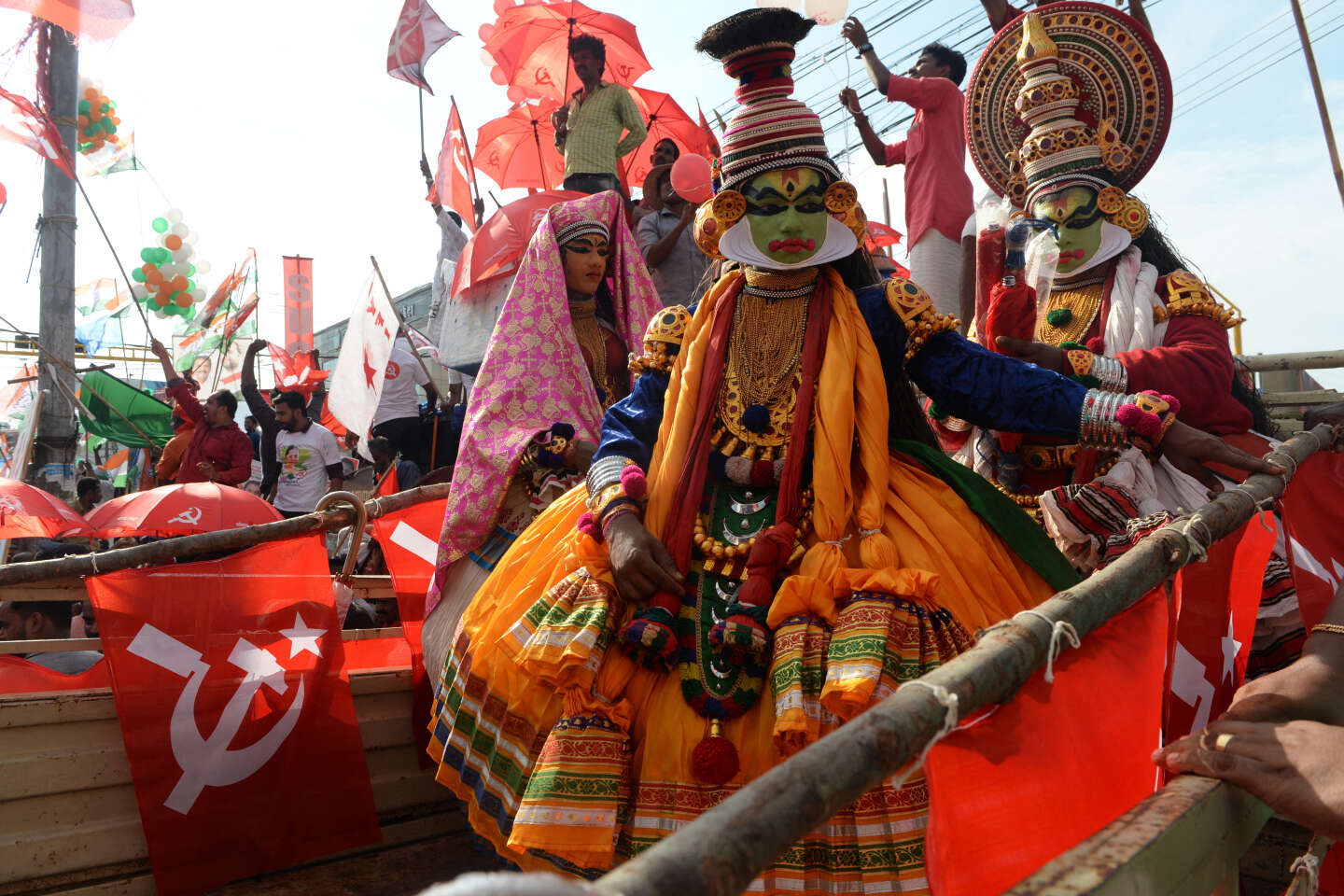Where to see communists parading together brandishing statues of Karl Marx, Friedrich Engels and Krishna, the eighth avatar the god Vishnu, in the party march that advocates dialectical materialism? Nowhere else than in Kerala, a state in southwest India. Where, on this same continent, do 100% of children attend primary school, including girls? In Kerala again, the most socially advanced state in the Indian Federation. Where is the highest life expectancy (73 years in the city), universally applicable medical coverage and free education for all? Still in Kerala, this never-ending state has, to the greatest pride of its inhabitants and ruling Communist Party, broken records that most other Indian states would envy – not to mention any other country on the planet.
Performances on this social foundation were so conspicuous that within a few decades after Kerala’s formation as a state of the Union of India – it was created on linguistic grounds in 1956 following the merger of the monarchies of Travancore, Cochin, and Malabar districts. – many experts, including at the UN, do not hesitate to talk about it Kerala models.
An unprecedented social model, but also, perhaps, a survival of a past that, elsewhere on the planet, with the exception of post-communist authoritarian Chinese or Vietnamese regimes, has now come to an end: in 1957, Keralais, which was no less opportunity to differentiate themselves, have voted for the Communist Party of India: the latter won a victory in the state marking the first success of a PC ruling by ballot rather than by force. Subsequently, the Communists continued to garner electoral success here within the framework of a rather heterogeneous political coalition, alternating their power with the Nehru-Gandhi family Congress Party during various legislative elections.
In 2021, the Communist Party of India (Marxist) or CPI (M) – the more important of the two branches of the Communist Party of India – won local legislative elections for the second year in a row, a performance unprecedented in the state for forty years. year. many years. Evidence that, as proponents of the movement think, the Indian avatar of the Marxist-Leninist formation is doing quite well in these tropical latitudes.
“Pocket last match”
“Kerala is a bit like our village in Asterix”, jokes Venu Rajamony, Indian diplomat and former ambassador to the Netherlands, whom we meet at his residence nestled under coconut trees near one of the alcoves that irrigate the Cochin hinterland, including the old town full of architectural traces of the presence of successive Portuguese, Dutch settlers and England.
You have 69.16% of this article left to read. The following is for subscribers only.

“Twitter junkie. Hipster-friendly bacon expert. Beer ninja. Reader. Communicator. Explorer. Passionate alcohol geek.”







